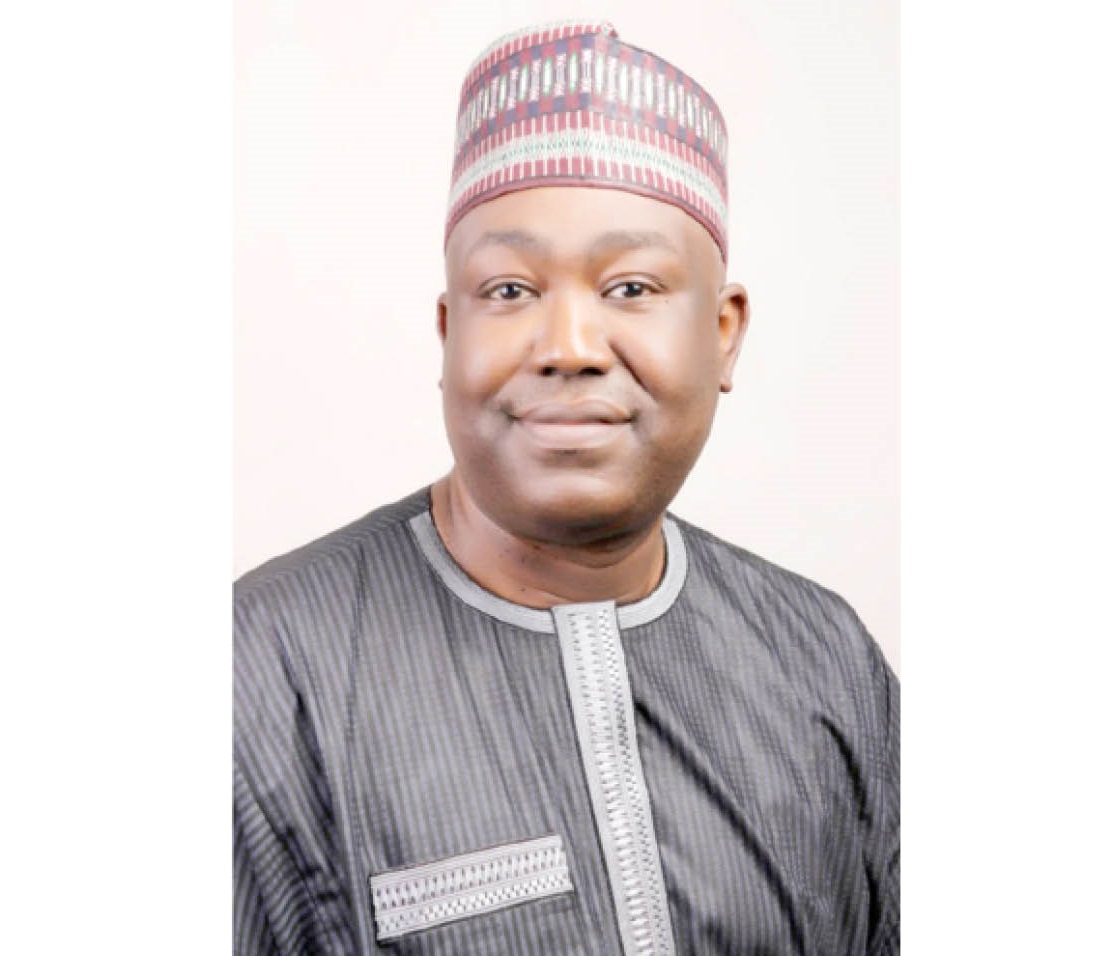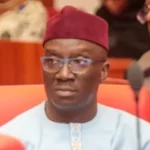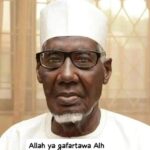Gbenga Olawepo-Hashim was the presidential candidate of People’s Trust during the 2019 general elections. He was a notable pro-democracy figure in the then Global Pro-Democracy Resistance in the late 1980s and a respected youth leadership voice from Africa. In this exclusive interview, he spoke on the need for a national agenda in addressing growing agitations and security challenges in the country, the indivisibility of Nigeria, the recent resolutions by southern governors, his 2023 political ambition, amongst other issues.
What is your take on the growing agitations and security challenges bedeviling the country?
I think we all know the issues, so I am not going to repeat the lamentations. There are both local and external factors driving the insecurity. Underlying this, we have increasing poverty, illiteracy, hatred and bigotry mixing with local and external cause of insecurity.
If you look at the external causes, there are massive migrations going on in the Sahel region. It is generally acknowledged that the Sahel is becoming increasingly warmer by 1.5 per cent degree celcius, higher than the international average of global warming. It is making water and land to dry off and there’s increasing migrations down South.
We have an estimated 50 million herders in the Sahel region who are searching for grass and water. Imagine 50 million herders desperately looking for water and grass, and then, you have criminal elements mixing up with them and they are coming down South, and that means Nigeria.
That’s a problem on one hand. You also have the problem of banditry that is associated with non-state actors who have been working with all kinds of elements in Libya. And they have all moved down to Chad, Niger, Nigeria, Burkina Faso. Some of them are people who have been doing illegal mining operations while some are doing cattle rustling, and what have you.
These are dimensions. Now, you also have the ongoing agitations by the Indigenous People of Biafra (IPOB) and agitations in the South-West. When we look at these issues, we made recommendations in a statement we reeled out on a six-point agenda. Number one; it appears the military is overwhelmed; most of the things we are drafting the military to do are not their jobs. These are jobs that should have been handled by the police and civil institutions.
When you are talking about coping with migrations, these are things that fall squarely within the purview of cooperative agreements in the Foreign Affairs Ministry. What strategies have we evolved with our neighbouring countries in terms of coping with migrations? Migration is a problem anywhere in the world, including Europe, and that’s why you see that European countries will go into negotiations with bordering countries in the Mediterranean.
If we have been voting money for foreign affairs, how are we prioritising the Sahel in terms of our expenditures? What kind of cooperative agreements do we have? Do we need embassies in every country of the world, or right now, we priortise our expenditures to surrounding countries that are impacting on our security? Also, do you want to have a defence cooperative agreements with a friendly country so that you can at least get some stability before you rebuild the army? The new chief of army staff said his priority was to rebuild the army, but this will take time. I also saw the president talking about that. But now, you see that the problem is already here. So, before rebuilding the army, what do you now do that the enemy is right at the door? How do we ensure that at least we are able to push them backward? You will need a high level defence cooperative agreements with the friendly countries to be able to stabilise the situation, especially in the North-Central states that are around Abuja before you begin to rebuild the army, which will take some time, in terms of training, equipment, doctrine. It is not going on happen overnight. That’s the essence of defence cooperative agreements we are advocating.
We have to quickly put framework for state police. I think this is already gaining some understanding, even within the government circle. But I think this is something we need to do fast. Let me emphasise that we need police at levels. We don’t want to turn state governors to some local czars. You must have protection for minority communities who are best represented by their local government administrations. Let’s have a dialogue with various shades of opinions; and most importantly, we ask for an all-inclusive cabinet that’s going to be broad-based and will inspire hope and efficiency. This is what we need now to deal with these crises. The All Progressives Congress (APC) is too narrow and the Peoples Democratic Party (PDP) is not there. You need more than any party’s wisdom to be able to deal with the current crises.
As you rightly said, the civil space is ungoverned; what do you think should be done for security agencies, apart from the military, so that they can quickly take charge of their primary responsibilities?
It is good to give them the resources they need for operation, but more importantly, states and local governments should be allowed to raise their own police.
Few days back, southern governors met and came up with a resolution on the need for a national dialogue on issues affecting the country; what is your take?
Immediately after their conference in Asaba, I had a phone conversation with one of the former heads of state. The first thing he said was, “I didn’t see them condemn the IPOB; why didn’t they do that?’’ My take on that is that they have spoken as southern governors, and people have the tendencies to focus on issues they think are of priority to them. When northern governors meet, they are also likely to focus on things that are of priority to them.
What we need to do now is to have a national agenda, not regional. And this has to be driven from the centre. That’s why we proposed a 6-point agenda. We must also be able to agree while discussing issues that are local and regional in nature. And we will all agree to the fact that Nigeria is indivisible; this is what our founding fathers signed for. This was the proposition of Nnamdi Azikiwe and it has been incorporated in our constitution. Some people think it was a military dictated principle; it was not.
Azikiwe was of Igbo extraction; is the agitation for Biafra out of ignorance or just a political gimmick by some people?
People have legitimate concerns; they are disgruntled about a whole lot of things. But are those things a basis to ask for secession? I will say no. People are disgruntled by the fact that in the national security agencies they don’t have a voice. But quite funny, if you go to the records, these were things the other regions were complaining about the South-East domination of all the security agencies in the First Republic. Now, the table has turned and some people are complaining. Every side has their arguments, but if we must have a united Nigeria, we must ensure we find friends and loyalists we can trust from every region; that is the way to calm everybody’s nerve. Secession is not an option.
You vied for the office of the president in 2019 under People’s Trust. Some people are attributing the problems we are facing today in the country to 2023 elections, what would you say on this?
I think the insecurity problem has been there, even before President Buhari came into the government. And I think some of the factors were even compounded under Jonathan, to be honest with you. A lot of people don’t like this line of discussion, but it is a fact we have to face.
When some foreign powers decided to overthrow Gadaffi, the African Union (AU) heads of state warned against such a move because of the consequence it would have on the West Africa sub-region particularly. What happened during that intervention was that there was power disequilibrium in the region, having introduced superior training in arms and armaments by non-state actors. You have a situation where non-governmental entities now have more superior firepower more than all the states in West Africa.
Some of these arms are all over in Niger, Mauritania, Burkina Faso, Cameroon and other places. So you need to upgrade armaments and trainings at the disposal of the various states in that region.
What’s your plan ahead of 2023?
Politicians will say that having been a presidential candidate means that I am on the field, but it will be quite insensitive for any politician to go about talking about 2023 when we are in 2021 and don’t know what is going to happen. Who is going to vote for you when all the people are dead? We first have to focus on how to secure, stabilise and unite the country. This is what I am currently focused on.
You were in People’s Trust in 2019; ahead of 2023, which political platform would you align with?
We are already zeroing down on where we will be; and we have done all the consultations. Of course, if you are talking about the next election, you can be talking about making a choice between the APC and PDP. I think this will become public very soon.

 Join Daily Trust WhatsApp Community For Quick Access To News and Happenings Around You.
Join Daily Trust WhatsApp Community For Quick Access To News and Happenings Around You.


